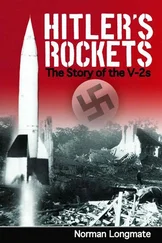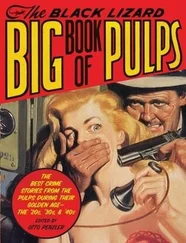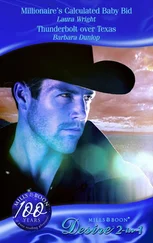Mike Mullane - Riding Rockets
Здесь есть возможность читать онлайн «Mike Mullane - Riding Rockets» весь текст электронной книги совершенно бесплатно (целиком полную версию без сокращений). В некоторых случаях можно слушать аудио, скачать через торрент в формате fb2 и присутствует краткое содержание. Жанр: Старинная литература, на английском языке. Описание произведения, (предисловие) а так же отзывы посетителей доступны на портале библиотеки ЛибКат.
- Название:Riding Rockets
- Автор:
- Жанр:
- Год:неизвестен
- ISBN:нет данных
- Рейтинг книги:3 / 5. Голосов: 2
-
Избранное:Добавить в избранное
- Отзывы:
-
Ваша оценка:
- 60
- 1
- 2
- 3
- 4
- 5
Riding Rockets: краткое содержание, описание и аннотация
Предлагаем к чтению аннотацию, описание, краткое содержание или предисловие (зависит от того, что написал сам автор книги «Riding Rockets»). Если вы не нашли необходимую информацию о книге — напишите в комментариях, мы постараемся отыскать её.
Riding Rockets — читать онлайн бесплатно полную книгу (весь текст) целиком
Ниже представлен текст книги, разбитый по страницам. Система сохранения места последней прочитанной страницы, позволяет с удобством читать онлайн бесплатно книгу «Riding Rockets», без необходимости каждый раз заново искать на чём Вы остановились. Поставьте закладку, и сможете в любой момент перейти на страницу, на которой закончили чтение.
Интервал:
Закладка:
“Have a seat.” He motioned us to a ring of chairs.
“We’ve been looking at the mission manifest…” As was his custom, George never made significant eye contact and he mumbled his words. I could sense everybody leaning forward to gain another decibel. “…and think it’s time to assign some more crews. I was wondering if you would be interested in STS-41D? It would be the first flight of Discovery. ” It was beyond what I had prayed for. Not only was I being offered a mission, I was being offered a position on the first flight of the orbiter Discovery. Aviators live for the day they might be the first to take a new jet into the air, and we were being offered the first flight of a space shuttle. Like the Stockholm Syndrome hostages we were, we all groveled in thanks.
George asked us not to publicly mention the assignment until the press release was made in a couple days. Mike Coats whispered to me, “When I get home, I’m calling everybody in my Rolodex.” There was no way I was going to withhold this information from my family, either.
On the walk back to Building 4, I considered my incredible fortune. Besides getting the first flight of Discovery, I was also part of a great crew. At age forty-nine, snowy-haired Hank Hartsfield was the old man. He had come to NASA in 1969 as an air force test pilot with more than seven thousand hours of fighter jet flying time. STS-41D would be his second space mission and first as a commander. Unlike a number of his peers who were so anal that even the rest of us anal-retentives noticed, Hank was easygoing and quick with a laugh. He was an Alabama boy who had retained the drawling speech and the political ideals of the Deep South. Hank was so far right on the political spectrum he made even the John Birch Society look like a collection of hankie-wringing, pantywaist liberals.
Mike Coats would be our PLT. He was a former Navy A-7E attack pilot with movie-star good looks. My daughter hadn’t been wrong when she likened him to Christopher Reeve’s Superman character. A curl of black hair would periodically fall across his forehead, making the Clark Kent appearance complete. Mike was a quiet family man, devoted to his wife, Diane, and their two children. I never heard him swear or bring a disgusting joke to the table or get intoxicated or look twice at any of the beautiful women we met on our trips. Mike was a rare exception to the rule that military aviators are root-bound on Planet AD.
I was also happy to be crewed with Judy. It wasn’t just because she was so AD tolerant, although that was a big reason. She was smart, hardworking, and dependable, all the things you would want in a fellow crewmember. Of course the male in me also appreciated her beauty. The five years since our arrival at JSC had been kind to JR (her nickname). As most of us had done (under the hammer of astronaut competitiveness) she had taken to jogging and dropped her weight. Her ravishingly curly anthracite black hair now framed a leaner, bronze tan face.
Steve Hawley was a gift to all of us. More than any other post-doc, baby-faced Hawley was the source of my conversion from doubter to believer in the capabilities of the TFNG scientists. A Kansan with a PhD in astrophysics, Hawley was living proof an advanced civilization of aliens have visited Earth. He was one of them. No human had a comparable brain. In just a glance, Steve could commit the most complex shuttle schematics to permanent memory. Every checklist, including the two-volume malfunction massif, was in a virtual file drawer in his brain, ready for instant retrieval at the sound of a cockpit warning tone. He was a maestro in simulations, directing responses to ten different system failures simultaneously. John Creighton once commented that to have Hawley in the cockpit was to have a sixth GPC aboard, a play on the fact that the shuttle computer system consisted of only five IBM General Purpose Computers (GPC). Steve had so much brainpower, the space shuttle was hardly enough to occupy him. He found additional challenges. One was to attend professional baseball umpire camp over his vacation (he was a sports addict). It wouldn’t have surprised me to have learned he was also ghostwriting Stephen Hawking’s books. Hawley was held in such high regard by the military TFNGs that the pilots christened him “Attack Astronomer.” Since pilots were particular about their own titles—fighter pilot, attack pilot, gunship pilot—Hawley’s title was an honorific. Steve was recently married to Sally Ride and for the sake of that marriage he was trying to distance himself from us AD bottom feeders. But it was a struggle. Hoot kept pulling him back to the dark side.
There would also be a sixth crewmember aboard, a McDonnell Douglas employee, Charlie Walker, flying as a payload specialist (PS) to operate a company experiment.
That night, February 3, 1983, Donna and I celebrated over dinner and later in bed. As she slept beside me, I stared at the ceiling and thanked God for passage through one more gate on my journey to space. I finally had a mission. Space was looking closer than ever. But there were six other shuttle flights in front of me. A lot could yet go wrong. I prayed for the crews of those missions. I prayed for their safety and success. I prayed more fiercely than they were praying for themselves. I wanted them out of the way.
The official NASA press release followed within a couple days and we bought the beer at an Outpost happy hour. George had also named the STS-41C crew so there was a total of seven TFNGs who had jumped to the sunlit side of the unassigned/assigned fence. I was now the one being congratulated and I ached for the others who showed me their fake smiles.
During the party I heard one frustrated astronaut redefine TFNG—thanks for Nothing, George. I would never understand George Abbey. Some interpreted his dictatorial style as megalomania, but I never saw him seek a spotlight. In fact, a recent newspaper photo had appeared on the astronaut B-board showing Abbey shaking hands with a shuttle crew. It was captioned, “Unidentified NASA official welcomes astronauts.” We all laughed at that. It was as if a photo of the pope had appeared in a newspaper over the caption, “Unidentified papal official welcomes pilgrims.” But it was an indication of how invisible Abbey was. Though his management of the astronaut corps provided many opportunities for him to be in the press and on TV, he was never featured in either. Abbey was no megalomaniac. I don’t think anybody had a clue what he was. Hoot Gibson would later offer me his best guess…that Abbey loved us, but, like a stern parent, he didn’t care how we felt. He knew what was best for us and would give it to us at the time and place of his choosing. The problem was, we weren’t children. We were freakin’ astronauts who would have gladly taken whatever he thought was best for us, if he would have just told us what that was. Abbey’s secretive leadership style was a cancer on astronaut morale.
Our 41D crew was at the end of the training line for the JSC simulators, but there were still opportunities for payload training and we traveled to Seattle to learn the intricacies of the 25,000-pound Boeing-built Inertial Upper Stage (IUS) rocket booster that would be our primary cargo. After we deployed it from Discovery ’s cargo bay, it would lift a large communication satellite to geosynchronous orbit 22,300 miles above the equator. At the contractors’ factories, we also did some widows and orphans appearances, passing out “Maiden Voyage of Discovery ” safety posters to the workers. Judy had me laughing when she whispered, “There are no maidens on this flight.”
Maiden or not, Judy was the center of attention wherever we traveled. At one contractor event a young engineer went, quite literally, mad for her. Throughout a daylong factory visit, he was constantly at her side trying to anticipate her needs. When she had none, he created some, bringing her water, soft drinks, and snacks. When we sat for briefings he would stand in a corner and stare at her like a Labrador waiting for the Frisbee to fly. On our factory tour he would rush ahead to hold a door until she walked past, then sprint ahead to the next. If there had been a puddle anywhere on our route, I was certain he would have flung himself face first into it, offering his back as a bridge. I expected the senior contractor official to tell his drooling puppy to get lost, but he turned a blind eye. I could tell Judy was seriously upset by the attention, but she was too much of a lady to say what needed to be said—“Fuck off!” We all breathed a sigh of relief when we were finally in our cars and on the way to the sanctuary of our T-38s. Those were parked at the gate-guarded military apron of Los Angeles International Airport. Then, to our astonishment, as we sat in our cockpits with the engines running, Judy’s want-to-be paramour appeared out of nowhere, rushed under her jet, and pulled the chocks!
Читать дальшеИнтервал:
Закладка:
Похожие книги на «Riding Rockets»
Представляем Вашему вниманию похожие книги на «Riding Rockets» списком для выбора. Мы отобрали схожую по названию и смыслу литературу в надежде предоставить читателям больше вариантов отыскать новые, интересные, ещё непрочитанные произведения.
Обсуждение, отзывы о книге «Riding Rockets» и просто собственные мнения читателей. Оставьте ваши комментарии, напишите, что Вы думаете о произведении, его смысле или главных героях. Укажите что конкретно понравилось, а что нет, и почему Вы так считаете.












